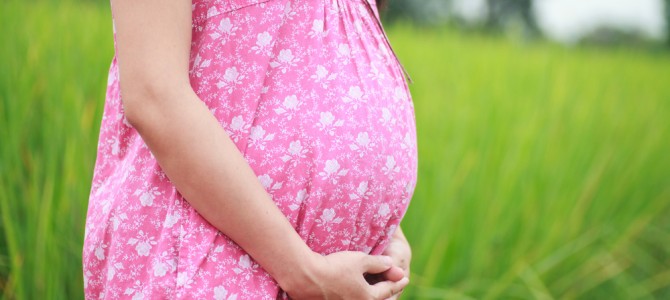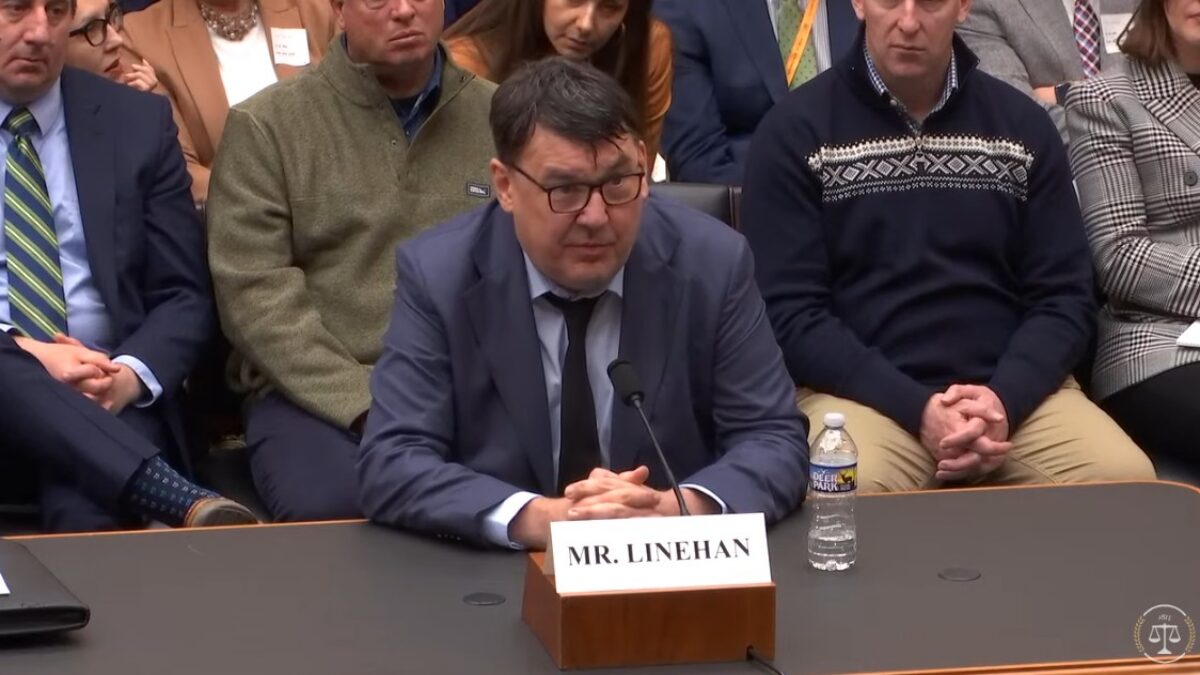
The Duggar family, of reality TV fame, are rarely described as “brave.” They have 19 children (“and counting,” as the title of their reality show declares) and are thus objects of fascination if not scorn. Yet the seemingly mundane act from one of the bunch recently did, in a strikingly quiet way, demonstrate a bit of courage.
It’s not that Jill Duggar has unabashedly prioritized getting married and starting a family at a young age, although that’s honestly a little refreshing these days. Before her wedding just two months ago, Duggar had never even held her future husband’s hand. Now the couple is on the cover of People Magazine announcing their pregnancy.
Something about that made me squirm. According to my handy pregnancy calculator, Duggar (whose married name is Dillard) was at most nine weeks along at the time of the cover story, short of the traditional 12-13 when most couples make any sort of public announcements regarding their pregnancies. What about the announcement made me so uncomfortable? As an Orthodox Jew, it certainly wasn’t the spectacle of an ever-expanding family. It was the timing.
In the Orthodox Jewish community, there is usually never any sort of formal announcement made until the birth. I have discovered the pregnancies of most friends when they started to look a bit too fat for their frame, or when they casually mention doing a tour of the hospital in their ninth month in a status update on Facebook. Not having been born of this religious world (I am technically a convert, although my father was Jewish), I’m not quite as superstitious as most. I eventually made an announcement on Facebook around my fifth month, when I began to show. I did, however, tell a handful of friends and family well before the 12-week mark.
Miscarriage: A Hidden, But Common, Occurrence
The more I thought about the Duggar/Dillard announcement, however, the more I came to admire their bravery. What is brave about announcing to the world you’re pregnant while still in the first trimester? The terrifying possibility of making another, much sadder announcement several days or weeks later. According to research conducted by Emily Oster, an economist and author of the only pregnancy book I recommend, “Expecting Better,” the average chance of miscarriage for Duggar is around 6 percent if she is eight weeks along in her pregnancy. Two weeks ago, at six weeks, she had an 11-percent chance of losing the pregnancy. Should everyone follow in Duggar’s footsteps and tell the world immediately upon seeing two lines on the test? It’s a personal decision, to be sure. But such openness could change the way our society views pregnancy, and pregnancy loss, for the better.
Since entering the world of parenting, I’ve gained new insights into the journey many of my friends have taken, and are taking, as they prepare to become mothers. Dozens have told me in confidence they are either trying to conceive or are already pregnant, well before the 12-week mark. While I knew conceptually that miscarriage was common, it wasn’t until I started to get devastating emails from friends a short time after they told me they were pregnant did I truly understand just how quickly a normal and seemingly healthy pregnancy can suddenly disappear. Couples who had just experienced the indescribable joy of hearing their first child’s heartbeat then had to face that their baby’s heart had stopped beating, stopped developing, and that they would not become parents on the date they had already circled on their calendars. These friends, having only told perhaps myself and a handful of others, were then faced with shouldering this grief in silence. Many believed they would never be able to get pregnant again, or carry a child to term. How could they, if their body had just rejected this pregnancy?
I have told each the same thing: that they are one of a dozen friends who have told me in just the last two years they have experienced this loss. This realization, that they aren’t alone, can make the burden easier to bear. If this loss could be shared and mourned, as with the loss of any other beloved family member, women (and their partners) would feel less isolated in their grief. They would have a support system, and a better understanding of their own predicament. Knowing the identities of the many others who experienced loss would give these couples the comfort of knowing their tragic situation is, unfortunately, more common than our society acknowledges.
It’s Not Your Fault
There is a deep sense of shame and guilt regarding miscarriage in our society. With the secrecy surrounding miscarriage, along with it comes deep mystery, as well. Friends who have experienced loss have asked me what they did to bring it upon themselves. Was it the box they lifted, the medium-rare steak they had for dinner, their stressful jobs? In “Expecting Better,” Oster explains,“It is estimated that 90 percent of miscarriages in the first trimester are a result of chromosomal problems. All of my research thus far had suggested that, other than not smoking, there wasn’t much I could do to prevent [miscarriage] from happening… You might wonder if there’s something you can do (other than getting pregnant at 20 rather than at 35!). The answer is probably not. As most pregnancy losses are due to chromosomal problems and those are determined at fertilization, it is out of your control.”
With the knowledge that miscarriage is common, that it has happened to the most careful mothers, women might stop blaming themselves for what was, in many if not most cases, merely an accident of genetics. Women who experience multiple miscarriages would benefit from knowing other women within their local community who could provide advice on seeking medical help, such as fertility specialists. Success rates between clinics can vary widely, and with the advice and counsel of friends who have been through the process, families can make more educated decisions about their healthcare providers.
The Pro-Life Consequences
There is also an important pro-life argument for rethinking our society’s three-month waiting period. When I told a (pro-choice) friend about my baby’s incredible biological advancement just four weeks into the pregnancy with my daughter, she was incredulous. Pro-abortion lobbies and activists have somehow convinced so many Americans—would-be mothers among them—that biology simply doesn’t exist. We have been made to believe that a “fetus” is a ball of cells well beyond when it actually is (it resembles a human, with a heartbeat, just two weeks after a missed period). Arms, legs, and a head are clearly visible on an ultrasound, waving around, just one month in. Anyone with a smartphone can download a pregnancy app with computer generated images of babies in the first trimester. Imagine how differently our society would view a first trimester pregnancy if we saw women kvell about early fetal development, if we saw their ultrasounds and screen shots of these renderings in our Facebook newsfeeds.

With the advent of modern technology, we know more about the first stages of pregnancy than ever before. A woman can visit a local drugstore and know she’s pregnant days before her missed period, and can have an ultrasound within two weeks and see her baby’s heartbeat. Few who have experienced the joys of parenthood are aware of this fact, thanks to the work of abortion absolutists and their faithful scribes in the media.
With this technology, we also sadly know when something isn’t going right in a pregnancy. When tragedy strikes, women should have a support network of family and friends, and the resources to seek help if it’s required. Whatever comfort the pro-choice community takes in their necessary fictions evaporates the moment it’s needed. No mother who looked at an ultrasound and saw what was undeniably a baby—their baby—can go back to believing in propaganda about a “clump of cells.”
Jill Duggar’s life may have been simply a magnified version of a conventional pro-life, family-centric story. But her announcement of her pregnancy so early added an easily missed thread to that narrative—and, arguably, one no less profound.









